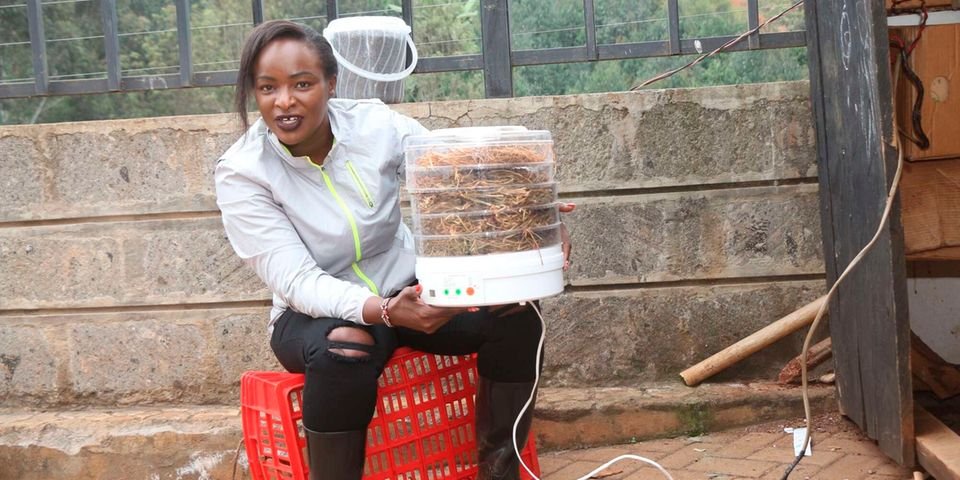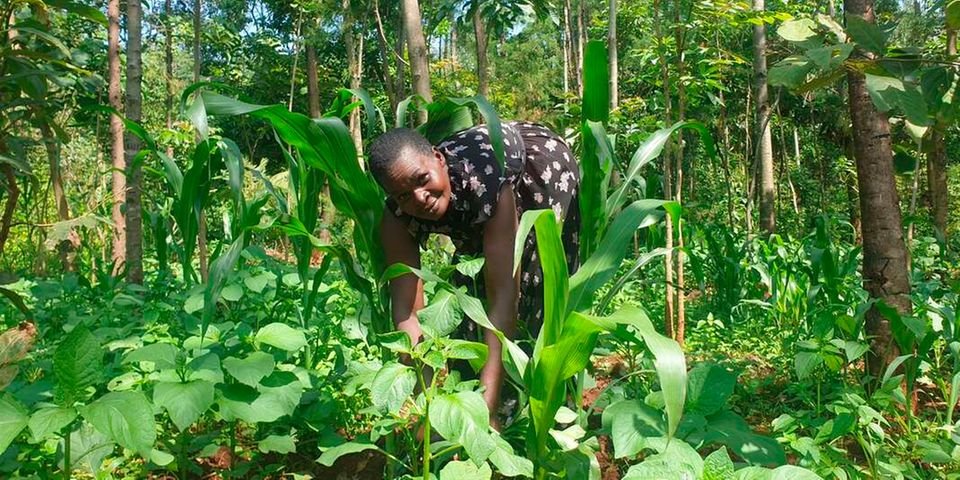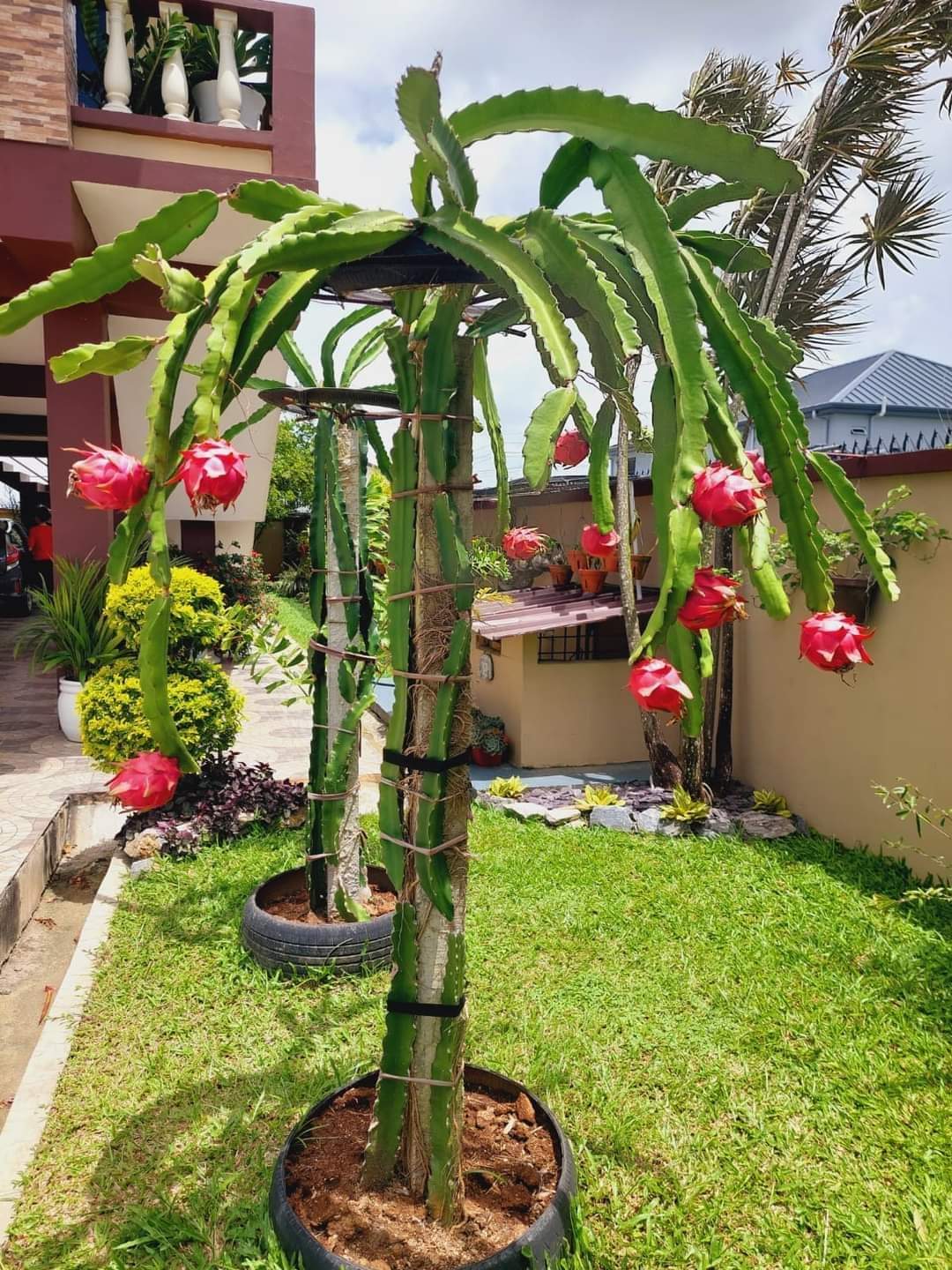Located off the busy Limuru-Nairobi Road in Kiambu County, Kianjogu village is a fast-growing peri-urban settlement.
Many farms in the area host maize, bananas, herbs and dairy cows, with most of the produce finding its way to markets in Nairobi.
It is here that Elizabeth Njoroge runs her agribusiness. Seeds of Gold team finds her inspecting crops on a section of her farm, where herbs like chives and sage, as well as collard greens (sukuma wiki) and spinach, thrive on some 80 multi-layer gardens, 72 of which host herbs.
“I use the storey gardens for maximum utilisation of space. One garden hosts between 50-70 plants, which translate to about three to four kilos of herbs per harvest,” she adds, noting that she leases the one-acre at Sh40,000 per year.
The farmer also keeps 15 New Zealand White rabbits in a double-decker cage that is elevated a metre from the ground and measures three by two metres.
Elizabeth, an IT officer at an NGO in Nairobi, started farming early last year at the height of the Covid-19 pandemic.
“I began by cultivating vegetables since I had a lot of free time while working from home. I grew broccoli, African nightshade (managu), spinach and collard greens.”
However, pests that include mites and leaf miners attacked her vegetables pushing up production costs.
“I did the maths and realised the venture was not rewarding,” she recounts.
But chives, a crop she had not paid much attention to as she grew it on the periphery of her farm, turned to be her saviour after realising it was not affected by pests.
She, thus, switched to growing herbs – starting with chives and sage. To get it right, she enrolled for one-week lessons at Healthy Living Technology (Helitech) in Githunguri.
Later, she joined Kapiti Sprouts in Isinya, Kajiado County, where she received training on adding value to herbs.
Elizabeth, who invested Sh150,000 in the agribusiness, now grows sage and chives on storey gardens as well as thyme, tarragon and rosemary in the open field using drip irrigation.
To grow the crops, she buys certified seedlings from propagators or splits from farmers for Sh15 each.
Raised beds
But she is working on propagating her own. She plants the seedlings on raised beds whose soil is mixed with manure to maximise on production.
Most of the herbs require watering three times a week. To conserve moisture, she mulchs the crop.
She starts her day by visiting the farm to check on the crops, ensuring they are well-watered and have not been attacked by pests or diseases.
She has divided her farm into sections named A, B, C, for easy management. The crops are farmed organically. She applies dried cow dung and goat droppings to provide the crops with phosphorus, nitrogen and potassium, while for top-dressing, she uses rabbit urine as foliar as well as a pesticide. She mixes a litre of urine with five litres of water.
“Basil is one of the most popular herbs but I don’t grow it because it is too fragile. I lost a whole thicket of basil last year due to prolonged dry spell,” says Elizabeth, who employs two workers and hires more on need basis especially during harvesting, sorting and grading. The crops mature in about four months. She harvests them in batches of 20 kilos by cutting their stems, then sorts according to their colour considering that the greener the herbs the better their quality. She then adds value on the produce.
“Harvesting is best done in the morning. After harvesting, I dry them in the sun to get rid of initial moisture then put in a dehydrator. We then crush them using a pestle and mortar then store in a closed container before they are picked by buyers,” she notes, adding that in a good month, she harvests between 100-120 kilos of herbs.
A majority of her customers are people who are health conscious as they use the products to blend with their juices.
She sells a kilo of dried sage mixed thyme at Sh1,000, chives Sh1,100, thyme Sh900 while tarragon goes at Sh1,000. Fresh herbs, however, go for Sh400. Depending on orders, sometimes she sources produce from farmers at Sh300.
“I am currently in the process of certifying my products with the Kenya Bureau of Standards,” says the agriprenuer, who brands them Nzuri Organics and uses social media and referrals to market her products.
One of her challenges is the inability to meet demand for tarragon and chives, which are not farmed by many farmers.
Winnie Nyonje, a food and nutritional scientist from Jomo Kenyatta University of Agriculture and Technology, says herb farming is a lucrative venture that can generate better returns if handled with care.
“Selecting the right type of herbs to grow depends on the target market. But one can start with popular herbs such as thyme that are easy to take care of and need less labour and provide more marketing opportunities.”
According to her, most herbs are vegetatively propagated and after planting, they can thrive as a thicket, therefore, they don’t require much maintenance as they are also resistant to pests and diseases.
Herbs contain antioxidants that help purify blood. Five years from now, Elizabeth sees herself as an exporter of herbs.
Article credit





